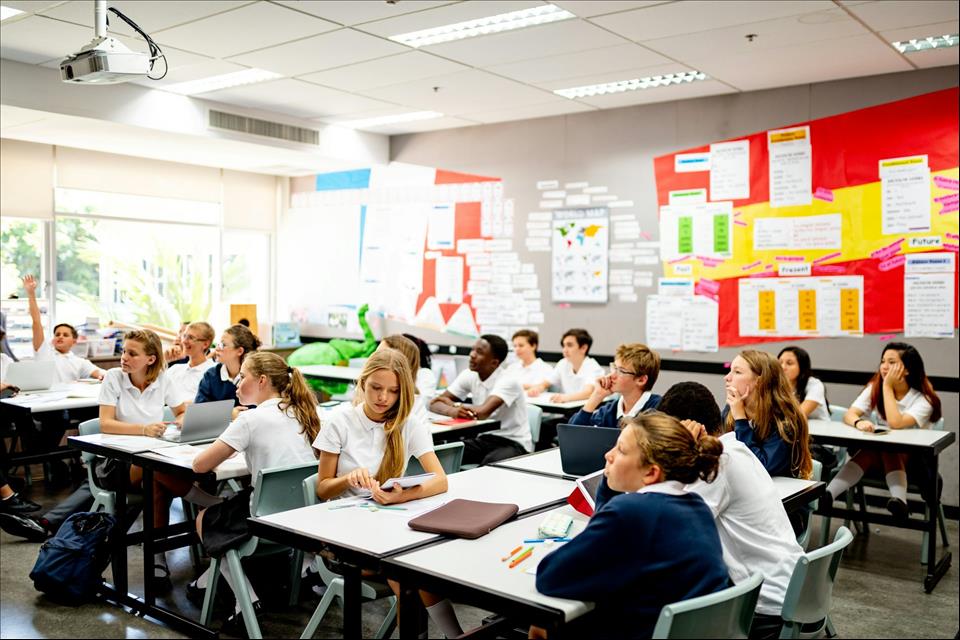
Young People In England And Australia Are Supposedly Poor At Learning Languages Our Research Shows This Isn't True
Australia has seen a major downturn in language learning. In 2021, fewer than 10% of students in year 12 – the final year of compulsory education – were studying a language.
Exam entry figures for England show the numbers of young people taking languages at GCSE is stabilising to some degree. However, since 2004, when a language subject was made optional after the age of 16, there has been a decrease of 35% .
In both countries, the lack of a strong language learning culture contributes to low enrolment and achievement rates in foreign language education. That both countries are English-speaking also leads to the idea that there is limited use in learning additional languages , because English is so widely spoken worldwide.
This has resulted in the perception that inhabitants of both Australia and England are poor language learners.
Appetite to learnOur research suggests this is not necessarily true. There is an appetite for language learning among young people in both countries, along with support from their parents . However, challenges such as harsh grading and teacher recruitment problems have meant this doesn't always translate into full classrooms.
As fewer young people take languages after the ages of 14 and 16, there is a knock-on effect at degree level and beyond. This affects the supply of new language teachers .
Australian educators consistently argue that making language learning compulsory for longer is vital to increasing participation in language subjects. However, research by one of us (Abigail) in England indicates that students who choose to study a language are more motivated than those for whom it is compulsory.
European languages have traditionally dominated language teaching in both countries. However, in England, Wales and Northern Ireland, GCSE entries in “other modern languages” – any language other than French, German, Irish, Spanish and Welsh – are rising. In Wales, government initiatives are attempting to secure the Welsh language learning pipeline from early years all the way to university, in addition to making Welsh more visible in media and daily life.
Numerous attempts have been made to improve Australia's Asian language capacities, in an effort to strengthen regional ties. Despite over $337 million AUD (adjusted for inflation) of investment in government programs, the past 20 years have seen a continued decline in numbers studying Asian languages there. Only Korean has seen any growth – but this can mostly be attributed to the rise of K-pop, rather than any Australian government initiative.
Focusing on what interests students could be a successful strategy. Rawpixel/Shutterstock
This musical phenomenon, along with other cultural exports such as the Netflix series Squid Game and the film Parasite, has seen interest in the Korean language grow globally .
Both England and Australia could use these successes to capitalise on language learning potential. Some Australian schools are already making the most of this wave of Korean popularity, called hallyu , to entice as many students as possible to the subject – but the language is not available as a school subject in England.
Australia is also taking steps to revitalise the teaching of Indigenous languages and to ensure their survival with future generations. Prior to colonisation, more than 250 Indigenous languages and 800 dialects were spoken throughout Australia. But a 2013 survey found only approximately 123 were in use, with only 12 being considered“strong”.
Read more: 'It's about making our children feel proud': how schools can learn about local Indigenous language and culture
Australian primary students in particular have expressed a desire to learn Indigenous languages . This desire was also reflected in Louisa's PhD data collection, with one university student saying:“If we have a look [at the languages spoken] internally, before we look externally, I think we'll find a lot more answers, because there's a wealth of resources here.”
This reflects a growing appetite among young people in Australia to learn Aboriginal and Torres Strait Islander languages as part of a more locally grounded education.
Through our work, we feel strongly that educators should listen more closely to what students are saying they want, rather than taking the well-worn route of telling them to learn a language for economic or strategic reasons.
By listening more closely to the interests and goals of young people in schools, we can start to provide teaching which supports their need for autonomy – even if, in the short-to-medium term, systemic problems such as the supply of teachers and resources also need to be addressed.
Students need to see the benefits of learning a language for themselves, and have the opportunity to connect with a language on their own terms. Louisa's PhD thesis asked language students in Australia about improving language participation. As one participant answered, students need to realise“what a cool life they're going to have from knowing a language”.

Legal Disclaimer:
MENAFN provides the
information “as is” without warranty of any kind. We do not accept
any responsibility or liability for the accuracy, content, images,
videos, licenses, completeness, legality, or reliability of the information
contained in this article. If you have any complaints or copyright
issues related to this article, kindly contact the provider above.


















Comments
No comment